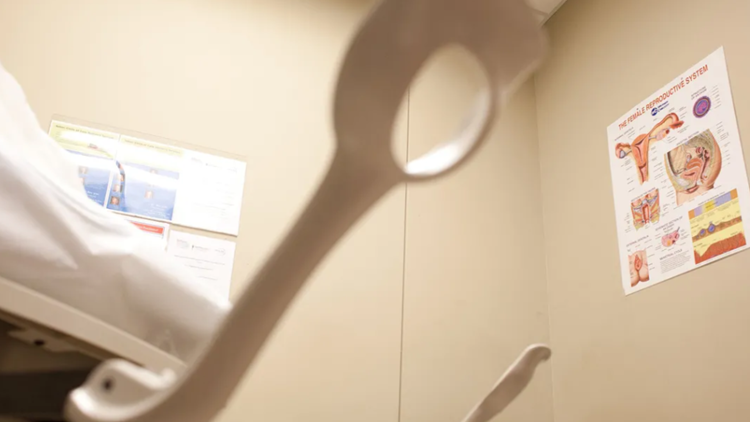This story originally appeared on The Texas Tribune's website here.
The U.S. 5th Circuit Court of Appeals will allow medication abortions, which involve a patient ingesting pills, to proceed in Texas during the coronavirus outbreak, the latest development in a weekslong legal dispute over state officials’ attempt to ban the procedure in nearly all circumstances as it combats the pandemic.
A previous ruling from the New Orleans-based appeals court lets patients near the legal gestational limit receive abortions as well.
Hundreds of abortions in Texas have been canceled since state officials barred the procedure, except when the woman’s health is at risk, as the novel coronavirus spreads. The prohibition is meant to preserve personal protective equipment, like masks and gloves, that is in short supply nationwide and to free up bed space as hospitals prepare for a possible surge in COVID-19 patients.
But abortion providers have accused state officials of exploiting “a public heath crisis to advance an extreme, anti-abortion agenda” and argued the procedure does not usually require hospitalization nor extensive protective gear.
On March 22, Gov. Greg Abbott barred medical procedures that are not “immediately medically necessary,” and Attorney General Ken Paxton quickly said the gubernatorial order applies to abortions, except when one is needed to protect the woman’s life or health.
The order, which extends through April 21 but can be modified, exempts procedures that would not deplete protective gear or eat up hospital resources needed to cope with the pandemic.
Lawyers for Planned Parenthood, the Center for Reproductive Rights and the Lawyering Project sued state officials on behalf of abortion providers March 25, kicking off a weekslong court fight that has pingponged twice between a federal district judge in Austin and the politically conservative appeals court before landing at the Supreme Court this week.
U.S. District Judge Lee Yeakel first blocked the state’s order, arguing that it “prevents Texas women from exercising what the Supreme Court has declared is their fundamental constitutional right to terminate a pregnancy before a fetus is viable.”
He later issued a more narrow ruling allowing abortion providers to offer medication-induced abortions — which are provided in the first 10 weeks of pregnancy — that do not consume the scarce protective equipment, he said. The state, represented by Paxton, argued in court filings that medication abortions may require personal protective equipment during initial doctors’ visits and in the small percentage of cases that result in trips to the emergency room.
“Respondents claim that medication abortion consumes little PPE, but, again, all PPE is valuable at this time,” a state filing said.
Yeakel, appointed to the bench by former President George W. Bush, also made an exception for patients who would pass the legal limit for an abortion — 22 weeks after their last menstrual cycle — by April 22, when the gubernatorial order lapses.
Previously, the appeals court twice largely upheld the state’s restrictions, saying the order is a “valid public health measure” that does not single out abortions. Constitutional rights, including those to peaceably assemble, publicly worship and have an abortion, can be “reasonably restricted” during a public health crisis, the judges said — adding that the order is best understood as a “temporary postponement” and not an “absolute ban.”
Judge James Dennis, appointed by former President Bill Clinton, dissented. Judges Jennifer Walker Elrod and Kyle Duncan, nominated by Bush and President Donald Trump, respectively, were in the majority.
In a weekend filing to the Supreme Court, lawyers for the abortion providers had asked that pill-induced abortions be allowed to continue as the case proceeds.
Casting the state’s near-total ban as “the most restrictive abortion policy in the nation,” the lawyers said it would “continue to deny hundreds of Texas residents their constitutional right to obtain an abortion,” forcing patients to “either remain pregnant and endure the physical, economic, and emotional consequences of pregnancy or to undertake risky and expensive travel to other states where abortion is still available.”
Doing so could increase the risk of COVID-19 transmission, the filing said, and more personal protective equipment and hospital resources would be needed for patients having an abortion later in their pregnancy or giving birth.
The Texas decision comes as other states, like Alabama and Oklahoma, have waged similar legal battles over whether temporary restrictions on nonessential medical procedures apply to abortions.
The legal wrangling in Texas has thrown abortion providers into a state of uncertainty as the procedure flipped from permissible to illegal in most cases and back again in a matter of days.
Patients have been turned away from Texas clinics and sought abortions out of state, according to the lawyers and media reports. One woman who spoke to The Texas Tribune said she was planning to drive to New Mexico to get an abortion but was able to get oral medication to end her pregnancy from an Austin clinic in the midst of the legal whiplash.
Emma Platoff contributed to this report.
The Texas Tribune is a nonpartisan, nonprofit media organization that informs Texans — and engages with them – about public policy, politics, government and statewide issues.



